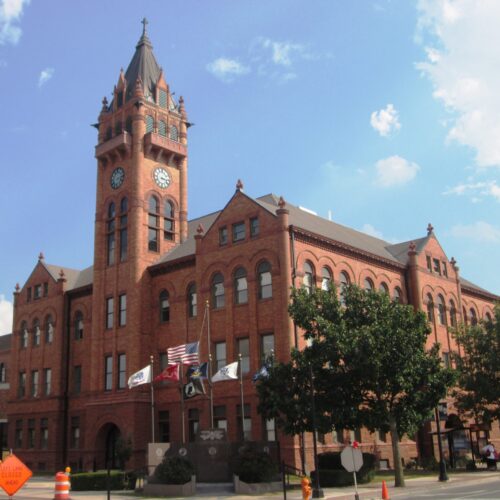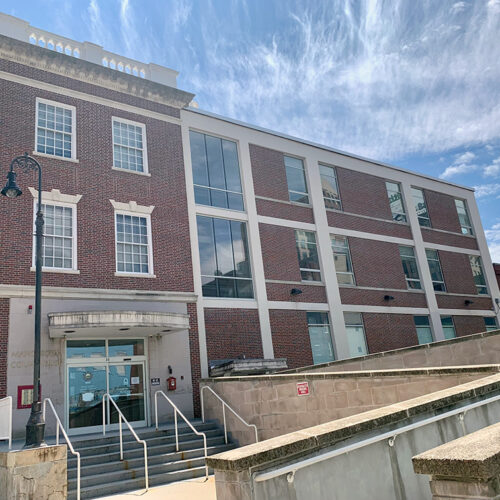ABA clarifies caseload standards for South Carolina prosecutors

Pleading the Sixth: In October 2014, the prosecutors’ association in South Carolina released their 2015-2016 budget request, stating that prosecutors in that state carry 2.5 times the “criminal justice” caseload standards recommended by the American Bar Association (ABA) in seeking a 43% increase in state funding. But wait – the ABA doesn’t have numerical caseload standards for the prosecution. In December, the ABA responded to the misappropriation of national defender caseload standards by the South Carolina prosecutors.
“The American Bar Association has set a criminal caseload standard of no more than 150 felony cases or 400 misdemeanor cases per attorney,” stated the 2015-2016 biennium funding request of the South Carolina Commission on Prosecution Coordination (SCCPC). SCCPC is the coordinating body for state’s circuit solicitors. The caseload standards were cited in an attempt to increase state support of the prosecution by 43% (up from $13,692,946 to $21,457,875).
On December 16, 2014, American Bar Association (ABA) made public a letter to the SCCPC from the ABA Director of Governmental Affairs, Thomas Susman, informing them that the “ABA has not adopted numerical caseload limits for prosecutors,” and asking that SCCPC “correct the erroneous reference to the ABA in citing authority for numerical caseload limits for prosecutors.” The letter points out that the only numerical caseload standards existent are for indigent defense providers.
The 6AC takes no position on the need for more prosecutors in South Carolina; that is a funding decision best left to local policymakers and taxpayers to decide. But we note that prosecutors in every state can handle a greater number of cases than public defense providers because prosecutors have all of law enforcement at their disposal while defense systems must conduct all investigations for themselves. Moreover, prosecution workload standards are not needed because prosecutors can control their own workload by dismissing marginal cases or offering better plea deals, whereas defenders are constitutionally required to provide competent and ethical representation to each and every person assigned to the indigent defense system by the courts.
That national prosecutorial caseload standards cannot be determined was made clear in the 2002 American Prosecutors Research Institute (APRI) report How Many Cases Should a Prosecutor Handle? The U.S. Department of Justice, Bureau of Justice Assistance funded APRI to conduct weighted caseload studies in 56 prosecutors offices across the nation to determine if national prosecutor caseload standards could be derived. APRI concluded that, “it is not feasible to develop national caseload and workload standards.” Interestingly, one of the reasons for APRI’s conclusion is that the length of time a prosecution needs to take on a case is directly related to whether the defense attorney is a public defender operating under excessive caseload or a private attorney retained by the defendant (noting that prosecutors can handle more cases if facing off against overloaded defenders versus private attorneys who are “more likely to extend court processes by using preliminary hearings for discovery purposes, filing motions, and requesting continuances”).
The issue is of particular interest because, according to a story in the November 22, 2014 Post and Courier, SCCPC faces “competition for funds from the state’s Commission on Indigent Defense, which is asking for about $4 million more to add about 36 public defenders to its current total of 219.” (For more information on the structure and funding of indigent defense services in South Carolina, click here.)
The 6AC joins the ABA in its pronouncement that “an expansion of prosecutorial resources absent a commensurate expansion of defender resources” in South Carolina violates the ABA Ten Principles of a Public Defense Delivery System call for parity of workload, salaries and other resources between the prosecution and the defense (Principle 8). We also agree with the sentiments of the South Carolina Commission on Indigent Defense Executive Director, Patton Adams as reported to the Post and Courier: “The system is so interlinked that in order for the dockets to move, you have to have enough people in all of these functions – judges, prosecutors and public defenders – for it to operate efficiently.”


